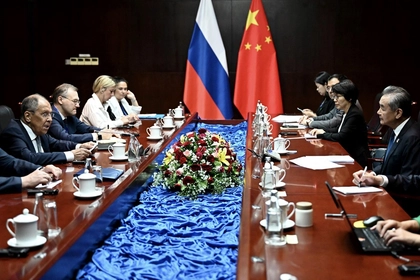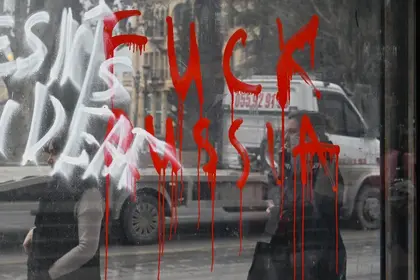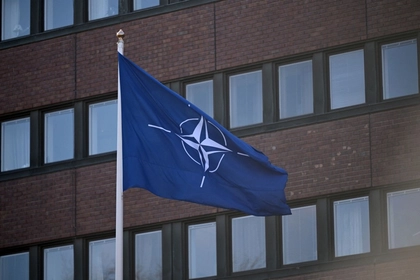Bashar al-Assad visited Vladimir Putin in Moscow. It was a friendly meeting between two autocrats who understand the other’s difficulties, partly because of the war they are both waging, and partly because they are isolated from most of the world.
According to the vote in the UN General Assembly, Putin can expect precisely five more such friendly visits: from the leaders of Belarus, Eritrea, North Korea, Mali and Nicaragua. And then it’s Bashar al-Assad’s turn again. Out of 193 countries in the UN, only those six, which throughout the past year have persistently voted to support Moscow for its actions in Ukraine, could be considered friendly towards Russia.
JOIN US ON TELEGRAM
Follow our coverage of the war on the @Kyivpost_official.
Moscow talks a lot about Russophobia, attempting to gather the nation around the war goal and, in general, resistance to the isolation that Putin’s rule has led them to. It is difficult to explain the contempt that Russia’s state leaders, and the entire country, have been facing around the world since it launched its full-scale war against Ukraine. Russophobia is not an explanation, but the only remaining excuse to tell people why “the world hates them” without telling them the truth.
A few days ago, the Russian representative in the Security Council spoke about Russophobia, and then his colleague from the U.K. taught him a lesson. He turned the constant Russian whining upside down. There is no Russophobia here, he said. The biggest threat to Russian culture and society comes from Russia itself and its military campaign against Ukraine, which has been destroying Russian society. The U.K. representative spoke in Russian so that the Russians present could understand him better, but also so that he could prove, with his knowledge of Russian, that he has respect for that language, and that he does not suffer from Russophobia.

Russia, China FMs Meet as ASEAN Talks Get Underway in Laos
No country that holds to its principles and to its dignity has any reason to do political business with Russia as long as its army engages in the destruction of an independent country.
Russia is furious about this. It has been trying to simulate participation in international affairs for a year. And then it encounters general contempt, as it did recently at the OSCE headquarters in Vienna, when almost everyone left the meeting hall while the representative of Russia was speaking. Sergey Lavrov, who has found himself similarly boycotted at international gatherings, was recently ridiculed in New Delhi when he said on a panel at the G20 conference that Russia was “trying to stop the war that was launched against it.”
Such bizarre extracts from the propaganda manual as Lavrov’s only passes muster with the unhappy audience at home. When they try to “sell” it anywhere in the world – in the UN, OSCE, and G20 – they face a boycott, they are taught a lesson (in their native language), or are laughed at, as happened to Lavrov in India. There is no Russophobia. There is only contempt for the abuser, and loud laughter when Russia claims to be the victim, not the attacker. Russia is also despised in Armenia, because it thinks Armenia belongs to Russia, and it can humiliate it, as it does its own people at home.
The government in Yerevan banned the entry into the country of Margarita Simonyan, Putin propagandist and the chief of Russia Today, who is of Armenian origin, because she humiliated this country and its officials. She said that Prime Minister Nikol Pashinyan is a “traitor to the Armenian people,” and that he “hates Russia and deceives Putin.” Again, it shows Moscow’s obsession with Russophobia.
Isolated, despised and ridiculed, the Kremlin is furious that no one pays attention to their threats, and even more so, because they respond to their anger either by resisting or by ignoring them. At the very mention of the introduction of sanctions against Russia, Russophiles in Serbia are panicking that Russia will add Serbia to its list of enemy states. This, incidentally, is just another name for Russophobia, a deep ailment that afflicts Moscow, which it projects on everyone else.
And what will happen when Russia puts Serbia on the list of enemy states? Will it attack Serbia like it attacked Ukraine? It will not. It will issue a statement about it, using the same words it used to declare others in Europe as enemies – from Bulgaria, Poland and the Baltic states, to France and Spain.
The guests on Moscow TV shows will shout furiously about Serbia. They will ask Putin to raze Serbia to the ground, as they have been asking for the same fate for Paris, London and Berlin for a year now. They will preach that Serbia is not a country, and that the Serbs are not a nation. And that is all.
The patterns by which people behave toward each other cannot be applied to states. But even among states there is a custom that you should choose your friends. No one, apart from those six from the UN, will take Russia’ side as long as it tramples on Ukraine and tries to destroy it. Russia is alone, like an ordinary bully who hates everyone around it, projecting Russophobia as an excuse for bullying.
The views expressed in this opinion article are the author’s and not necessarily those of Kyiv Post.
You can also highlight the text and press Ctrl + Enter






